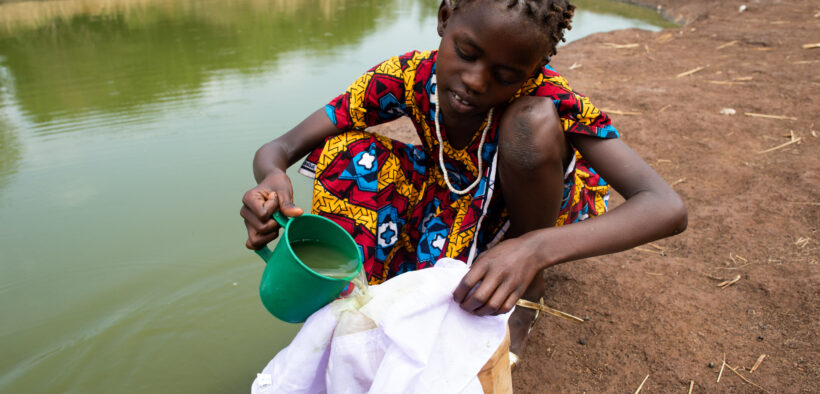Eradication Is a Difficult, Lengthy Affair

By Dr. Kashef Ijaz, vice president, health programs.
Only one human disease has ever been eradicated; that was smallpox, in 1980 — a tremendous victory for humanity. The term “eradication” is defined as permanent reduction to zero of the worldwide occurrence of infection caused by a specific pathogen, with no risk of its return.
The International Task Force for Disease Eradication (ITFDE) was formed at The Carter Center in 1988 and continues to meet there to evaluate the potential for eradicating infectious diseases. It is the only body in the world empowered to make that determination.
Scientists and international health organizations serving on the ITFDE have identified eight diseases that have the potential to be eradicated:
- Guinea worm (dracunculiasis)
- Poliomyelitis
- Mumps
- Rubella
- Lymphatic filariasis
- Cysticercosis
- Measles
- Yaws
If eradication were easy, all these diseases would be long gone. But the reality is that eradication is incredibly difficult. Vaccines for polio, mumps, rubella, and measles have been in use for generations, and yet these diseases persist. Clearly, there’s more to it than developing a vaccine.

Eradicating Guinea worm requires filtering all drinking and cooking water in endemic areas. Ten-year-old Kurujwok Okoth Oriew, of Wichini village in the Gog district of Ethiopia, strains pond water through a household filter into a pail. (Photo: The Carter Center/Ryan Youngblood)
Scientific feasibility and socio-political support are the two primary factors that determine whether a disease even has the potential to be eradicated.
Conditions that make it scientifically feasible to eradicate a disease include:
- Epidemiologic vulnerability. A disease may be considered vulnerable if: it does not spread easily; there is a natural cyclical decline in prevalence; there is a naturally induced immunity; it is easily diagnosed; and the duration of any relapse potential is short.
- Availability of an effective and practical intervention. Such interventions could include a vaccine or other primary preventive measure, a curative treatment, or a means of eliminating vectors. Ideally, intervention should be effective, safe, inexpensive, long-lasting, and easily deployed.
- Demonstrated feasibility of elimination. A disease that has been documented to have been eliminated from an island or other geographic unit could be a candidate for eradication.
Even if it is scientifically feasible to eradicate a disease, there are nonscientific conditions that must be considered, such as:
- Perceived burden of the disease.
- Expected cost of eradication.
- Synergy of eradication efforts with other interventions.
- Necessity for eradication rather than control.
Today, only Guinea worm and polio are in the endgame of eradication, and the last mile is by far the most difficult part of the race. With The Carter Center leading the campaign since 1986, Guinea worm has declined (without a vaccine) from an estimated 3.5 million cases a year to just 12 cases so far this year. That’s great, but we can’t be satisfied until the number reaches zero — including among animals — and stays there. Polio, for which vaccines have been administered worldwide since the 1950s, still generates a few “wild” cases per year, on top of a handful of cases stemming from the vaccine itself.
All eight diseases on the ITFDE’s list have been largely eliminated in developed countries but remain a real threat in many places. Eradication of any of them would dramatically and permanently improve the quality of life for millions of the world’s poorest people, but it requires commitment and persistence. It is our humanitarian duty to continue to pursue this goal.
This article was originally published in the Saporta Report.
Global Impact Starts with You
Your support sustains the Carter Center's mission of waging peace, fighting disease, and building hope around the world.

